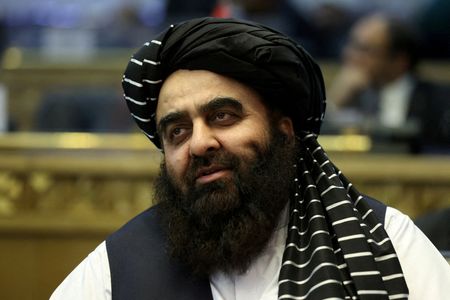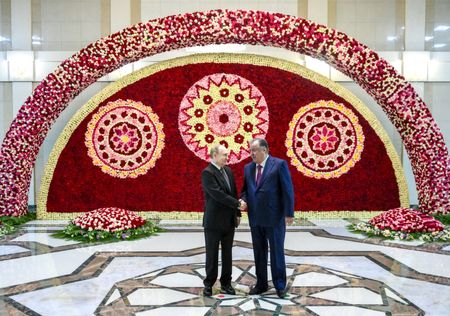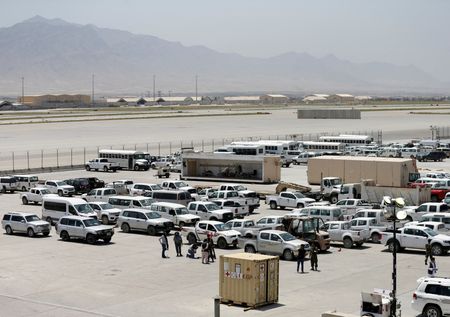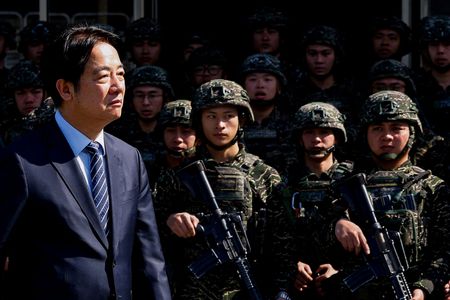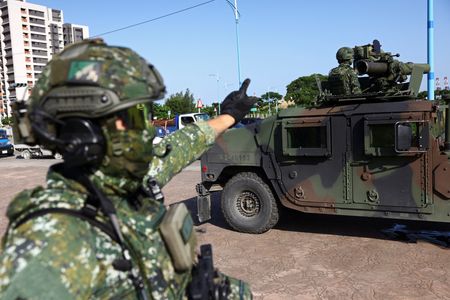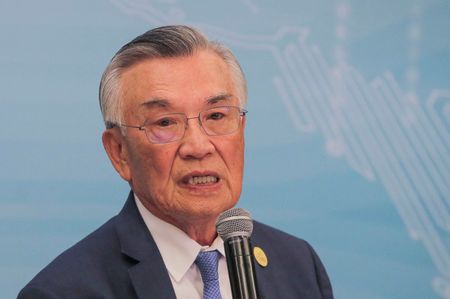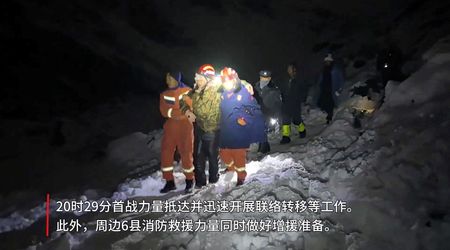By Mohammad Yunus Yawar
KABUL (Reuters) – Afghanistan’s Taliban foreign minister left for New Delhi on Wednesday, his ministry said, in what would be the first visit to India by a Taliban leader since the group seized power in 2021.
The trip highlights Taliban efforts to expand engagement with regional powers in a quest for economic ties and eventual diplomatic recognition. So far, Russia is the only country to have formally recognised the Taliban administration.
Afghan Foreign Minister Amir Khan Muttaqi will hold talks with Indian Foreign Minister Subrahmanyam Jaishankar and other officials on political, economic and trade issues, the Afghan foreign ministry added.
Historically, India and Afghanistan had friendly relations but New Delhi shut its embassy in Kabul after the 2021 U.S. withdrawal from the war-shattered country and the return to power of the Taliban.
India opened a small mission a year later to facilitate trade, medical support and humanitarian aid.
New Delhi does not officially recognise the Taliban government but has taken tentative steps to thaw ties with meetings and talks between senior officials in their respective foreign ministries.
Muttaqi’s trip was made possible after the U.N. Security Council Committee temporarily lifted a travel ban on him to allow diplomatic engagements abroad, India’s foreign ministry said last week.
Discussions during Muttaqi’s trip will centre on bilateral cooperation, trade exchanges, exports of dry fruit, facilities in the health sector, consular services and various ports, the Afghan Taliban foreign ministry said last week.
On Tuesday, Muttaqi attended a regional meeting in Moscow where Afghanistan’s neighbours including India, Pakistan, Iran, China and several Central Asian countries issued a joint statement opposing the deployment of foreign military infrastructure in the region.
The statement was regarded as a signal of opposition to U.S. President Donald Trump’s stated objective to retake control of the Bagram military base near Kabul.
(Reporting by Mohammad Yunus Yawar in Kabul and Surbhi Misra in New Delhi; editing by YP Rajesh and Mark Heinrich)

